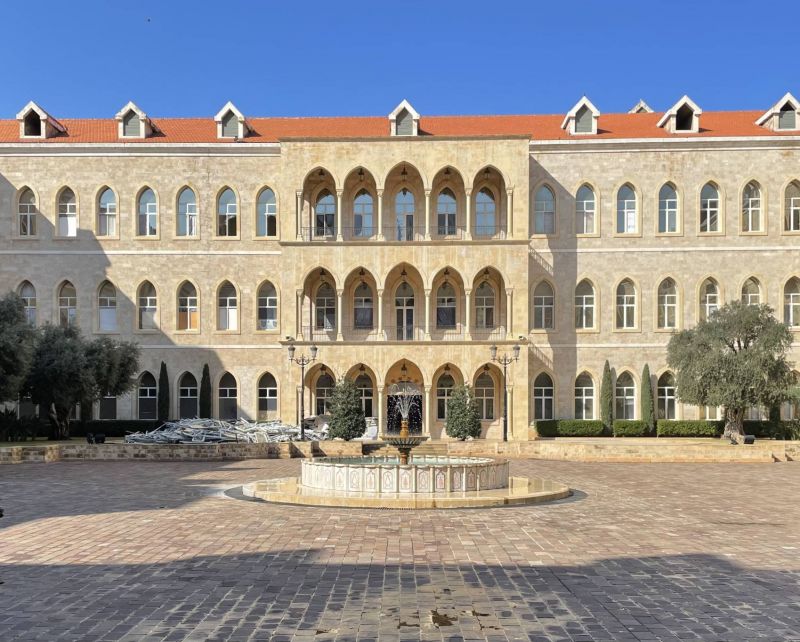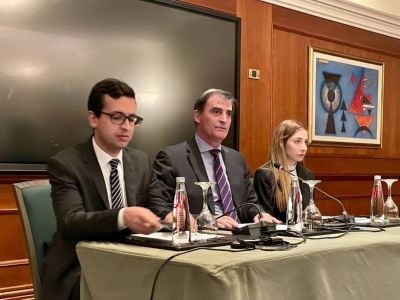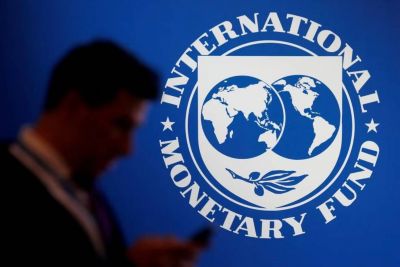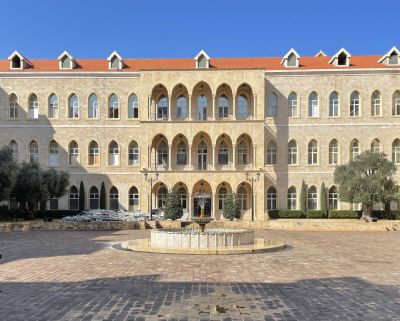
The Grand Serail. (Credit: P.BH/L'Orient Today)
BEIRUT — How has almost the entire $1.139 billion allocation of Special Drawing Rights (SDRs) provided to Lebanon by the International Monetary Fund (IMF) in September 2021 been spent? This was the contentious question that brought together members of Parliament in the Finance and Budget Committee, chaired by MP Ibrahim Kanaan, during a session attended by caretaker Finance Minister Youssef Khalil and second vice-governor of Banque du Liban (BDL), Bachir Yakzan.
According to Kanaan, the committee's interlocutors were unable or unwilling to provide answers to the "precise" questions from the MPs about how the SDRs had been disbursed and the legal mechanisms under which these expenditures had been approved. "The finance minister provided a breakdown of expenses for the past two years on a small Excel spreadsheet that fits on a page," the MP said.
The document, of which L'Orient Today was able to consult a portion, corresponds to the description provided, with amounts in dollars and percentages ranked in descending order, and for each line, a few words indicating how each portion of the SDRs had been allocated. The name of the caretaker minister, who refused to comment on the content of the discussions during the meeting, was also typewritten, with the date of Sept. 28 indicated. It is unclear whether this was the only document presented by Khalil during the meeting or whether Yakzan presented any other similar documents during the meeting.
Millions … and $10
Almost two years after the disbursement of these SDRs under a mechanism unrelated to any financial assistance program and approved when the government of Najib Mikati, of which Khalil is a member, took office, only $76 million remains, according to the latest count by the BDL on Aug. 31, 2023. This total has not changed since, according to information provided to the committee by the minister and BDL during the meeting, Kanaan told L'Orient Today.
According to this document, the contents of which were confirmed by a source at the Finance Ministry who requested anonymity as they are not authorized to speak to the press, the SDRs were used as follows:
• 45 percent of the total was spent on "medicines" subsidies ($478.3 million), of which only a portion remains today.
• 15.4 percent was used to repay "loans," including to the World Bank ($163.5 million).
• 15.3 percent financed transfers to EDL for fuel and maintenance operations ($162.2 million).
• 12.6 percent covered subsidies for wheat ($134.2 million), which are still in place.
• 6.5 percent was spent on subsidies for gasoline and diesel, which were definitively halted in September 2022 ($69.4 million).
• 3.3 percent reimbursed "SDR-related expenses" ($34.9 million).
• 1.3 pecent funded "passports," which likely put an end to their issuance process at the beginning of the year ($13.2 million).
• The remaining 0.6 percent was mainly used to fund expenses labeled "Public Works/International Civil Aviation Organization - Resolution 10," approved by the Finance Ministry for $7 million. This total is supplemented by $683,496.5 in "legal fees" for the Justice Ministry and just $10 — a potential typing error in the document — paid to an organization identified as ACSAD, likely the Arab Center for the Study of Arid Zones and Dry Lands.
The total of these expenses amounts to just over $1.063 billion, with a balance of $76 million remaining from the initial $1.139 billion, according to the amounts listed in the document. There is no mention of how the $49 million was spent between Aug. 15 and 31. This discrepancy was revealed in the most recent update of the BDL's foreign exchange reserves, which was published on Sept. 18 for the period up until the end of August.
Other grievances
In addition to the lack of precision from the executive and BDL, the Finance and Budget Committee pointed out two "violations" that it intends to report to the Audit Court, as explained by Kanaan during a press conference following the meeting.
First, there is the fact that these funds were spent without parliamentary authorization, in violation of what is stipulated in the Lebanese Constitution.
"We asked questions about the disbursement method, and the caretaker finance minister indicated that it was done in line with a cabinet decision or through letters written by the [caretaker] prime minister. This is a violation because all expenses must go through Parliament," the MP stated.
Second, Kanaan pointed to the fact that the SDR funds were deposited into an account specially opened by BDL instead of being transferred to the Treasury's account, which contravenes the Public Accounting Code, specifically Article 242.
Kanaan also stated that the committee had requested that the caretaker finance minister provide the "documents and correspondence" that were discussed during the meeting, and added that a new committee meeting dedicated to this matter would be scheduled once the requested documents have been received.


